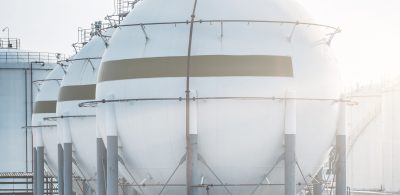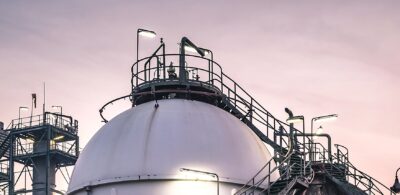The Australian gas supply outlook: addressing the consequences of anticipated shortages
16 March 2022
As part of its ongoing inquiry into gas supply in Australia, the Australian Competition and Consumer Commission (ACCC) released its January 2022 Interim Report (Interim Report) last month. The Interim Report identifies the tightening outlook for gas market conditions on the east coast of Australia and proposes key priorities to address the immediate and long-term consequences of anticipated shortages in domestic gas supply in the coming years.
This echoes the main takeaways from the Australian Government’s most recent National Gas Infrastructure Plan (NGIP) and Future Gas Infrastructure Investment Framework (Framework) released in late 2021. These publications outline how the Australian Government plans to strategically invest in domestic gas projects with a view to alleviating forecast shortfalls and thereby maintain comparatively low gas contract prices.
Anticipated gas supply shortfall in mid-2020s
The Interim Report notes that Australian domestic gas contract prices have experienced a relatively moderate increase since early 2021 in comparison to steeply rising prices for liquefied natural gas (LNG) overseas. LNG prices increased by almost 230% in the Asian LNG spot market over the corresponding period.
The ACCC predicts that natural gas shortages may emerge in New South Wales and Victoria as early as this year and, although that shortage may be met by surplus supply from Queensland in the short term, the entire east coast gas market is expected to experience a shortfall in supply from 2026.
The acceleration of the occurrence of the shortfall has been caused largely by delays in bringing new supply online and large write-downs of 2 P reserves for existing projects.
Unless sufficient new supply is brought online in time to meet the shortfall, the ACCC notes that Australian-produced gas that would otherwise be exported for sale on the international market may need to be diverted to support the east coast. Currently, the Australian Government’s Heads of Agreement with east coast LNG exporters requires that any uncontracted gas must be first offered on reasonable terms to the domestic market before it can be exported.
The ACCC recommends that the Heads of Agreement be extended ahead of its impeding conclusion on 1 January 2023, although it has also expressed reservations as to the level of compliance by some producers with the Heads of Agreement.
Alleviating demand through natural gas alternatives
The ACCC notes that any shortfall could be addressed in the medium to long-term through increased uptake of natural gas alternatives such as biomethane, natural gas-hydrogen blends, pure hydrogen or electrification.
Although the adoption of low or no-emissions alternatives is increasing hand-in-hand with commercial and governmental commitments to be at net zero emissions by 2050, residual uncertainty in the timing and extent of the uptake make it difficult to predict how the natural gas supply-demand balance will be affected in the coming years.
At this stage, the Australian Government is proceeding on the assumption that natural gas demand will remain constant even with the increasing uptake of alternatives. This is based on the idea that gas-fired generation will remain necessary to provide stabilising dispatchable power with an increasing proportion of renewables in the generation fleet, and that natural gas can be utilised as a feedstock in the production of clean hydrogen.
New domestic supply and infrastructure is needed to meet natural gas demand
Assuming that demand for natural gas does not decline, the Interim Report emphasises the importance of substantial and timely investment in Australian gas infrastructure projects to address the anticipated shortfall.
Both the NGIP and the Interim Report suggest that new natural gas supply will likely come from the bringing online of production from a number of projects, mostly in Queensland and the Northern Territory, which are still subject to reaching a number of investment and regulatory milestones, as well as at least one LNG import terminal in New South Wales or Victoria.
To address the risk of shortfall between now and 2027, the Australian Government intends to provide financial and regulatory support to the following projects as a matter of priority:
- developing the Victorian Golden Beach storage project in Victoria;
- expanding the Iona Gas Plant storage project in Victoria;
- expanding the South West Pipeline in Victoria; and
- constructing an LNG import terminal, noting that the Port Kembla Gas Terminal in New South Wales is at the most progressed stage of those currently under development.
In the longer term, up until 2041, the Australian Government has a broader plan to prioritise the expedited appraisal and development of viable new gas basins, as well as strengthening southbound transportation capacity along the east coast.
The Framework sets out the six criteria that will guide the Australian Government in making decisions about which projects will obtain its support. Project developers should aim to demonstrate that the project:
- Is for mid-stream gas infrastructure capable of supporting supply to domestic customers on a network.
- Meets a specific demonstrated market need or Government policy objective.
- Is private sector-led, but unable to obtain sufficient private support despite demonstrated reasonable efforts.
- Requires pre-final investment decision assistance.
- Has strong technical and commercial viability if supported.
- Enhances or creates market competition.
ACCC recommendations
The ACCC has identified a number of structural factors impeding upstream competition and limiting gas supply. It recommends that state, territory and Commonwealth governments implement the following reforms to facilitate gas projects being brought to commercial production faster:
- encourage greater diversity of suppliers through tenure/licence release and award processes as well as encouraging development in a timely manner when licences are awarded; and
- introduce a third party access regime for upstream infrastructure such as gas gathering lines, processing and compression facilities.
The ACCC notes that pipeline transportation prices will have a significant effect where more gas is to flow from Queensland to the southern states. Upcoming regulatory changes, particularly the requirement for pipeline operators to publish individual prices paid for services, may assist in addressing what the ACCC has described as monopoly pricing in this sector.
Where to next?
The Framework is set to be revised every two years, and an updated NGIP is set to be released at the end of this year that will provide updated information based on new analyses of the east coast gas market, the projected impact of the developing clean hydrogen industry, and the progress of current and projected gas infrastructure projects.
It is unclear how the above investment approach may be affected if there is a change of government following the federal election expected in May this year.
The ACCC expects to provide its next interim report in July 2022.
Authors

Partner
Law Graduate
Tags
This publication is introductory in nature. Its content is current at the date of publication. It does not constitute legal advice and should not be relied upon as such. You should always obtain legal advice based on your specific circumstances before taking any action relating to matters covered by this publication. Some information may have been obtained from external sources, and we cannot guarantee the accuracy or currency of any such information.



